Northern Ireland’s Gas Network Operators (GNOs) are preparing for the imminent introduction of renewable gases, such as biomethane, into the gas network.
Unlike the Republic of Ireland’s gas network, which is owned and operated by the semi-state Gas Networks Ireland, Northern Ireland’s (NI) gas grid is owned and operated by several different companies and entities.
Natural gas was first introduced to NI in 1996 via the Scotland to Northern Ireland Pipeline, which receives gas from Britain. Natural gas can also enter NI from the Republic of Ireland using the South-North Pipeline.
The high-pressure transmission network is managed by Mutual Energy and GNI UK (a subsidiary of Gas Networks Ireland).
This provides the backbone through which gas is transported to individual lower-
pressure distribution networks and zones that deliver gas to homes and businesses.
Figure one shows the operators in each region: Phoenix Energy (blue), Firmus Energy (orange), and Evolve (purple).
Request for information
NI’s five gas network operators have jointly launched a collaborative Request for Information (RFI) for potential biomethane producers and waste feedstock suppliers.
The information gathered from the exercise will inform future network planning and allow operators to prepare for the introduction of biomethane into the NI Gas
Network.
They are inviting prospective biomethane producers
and existing biogas producers who would consider
upgrading and repurposing their anaerobic digestion plants for biomethane production and gas grid injection potential to respond to the RFI. They are also asking farmers who are keen to supply waste feedstock to anaerobic digesters to respond.
Biomethane potential
Research led by Queen’s University Belfast in 2022 found there to be over 6,000 gigawatt hours’ worth of biomethane production potential from manure and silage in NI, equating to approximately 80% of NI’s current gas distribution network demand.
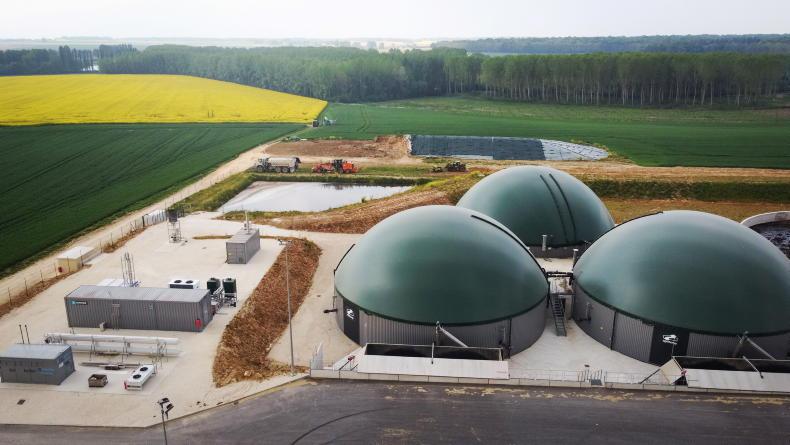
The gas grid operators are planning for the introduction of biomerhane into the network. Picture source: agriKomp
This does not include significant potential from other sources, such as municipal, commercial, and industrial waste sources, and potentially energy crops.
Why is this needed?
Not every area of the NI gas network can easily accommodate large volumes of injected biomethane, as there may not be a steady demand for the gas in that pipeline that matches injected volumes.
The information gathered through this process will allow for the planning and development of the gas network to accommodate proposed biomethane volumes and deliver on the region’s green gas potential.
Results will also be used by the NI GNOs to inform the development of biomethane policy and the regulatory framework in Northern Ireland.
GNI conducted a similar exercise in the Republic in 2023 and received a total of 176 responses from prospective biomethane producers.
Gas Networks Ireland
In October 2022, GNI recruited a Northern Ireland energy transition manager, a role that monitors policy developments on behalf of GNI as the NI energy strategy is delivered, working collaboratively with the gas network operators on key topics such as biomethane, hydrogen, gas safety, operations and R&D.
How to take part
To complete the Request for Information survey, scan the QR code below with your mobile phone’s camera and follow the steps to fill out the questions. The survey takes five minutes and asks questions about the current stage of the AD project, intended volume of biomethane for injection, feedstock makeup, and off-take users. Responses to this RFI must be received by 17.00 on 20 May 2024.

Northern Ireland’s Gas Network Operators (GNOs) are preparing for the imminent introduction of renewable gases, such as biomethane, into the gas network.
Unlike the Republic of Ireland’s gas network, which is owned and operated by the semi-state Gas Networks Ireland, Northern Ireland’s (NI) gas grid is owned and operated by several different companies and entities.
Natural gas was first introduced to NI in 1996 via the Scotland to Northern Ireland Pipeline, which receives gas from Britain. Natural gas can also enter NI from the Republic of Ireland using the South-North Pipeline.
The high-pressure transmission network is managed by Mutual Energy and GNI UK (a subsidiary of Gas Networks Ireland).
This provides the backbone through which gas is transported to individual lower-
pressure distribution networks and zones that deliver gas to homes and businesses.
Figure one shows the operators in each region: Phoenix Energy (blue), Firmus Energy (orange), and Evolve (purple).
Request for information
NI’s five gas network operators have jointly launched a collaborative Request for Information (RFI) for potential biomethane producers and waste feedstock suppliers.
The information gathered from the exercise will inform future network planning and allow operators to prepare for the introduction of biomethane into the NI Gas
Network.
They are inviting prospective biomethane producers
and existing biogas producers who would consider
upgrading and repurposing their anaerobic digestion plants for biomethane production and gas grid injection potential to respond to the RFI. They are also asking farmers who are keen to supply waste feedstock to anaerobic digesters to respond.
Biomethane potential
Research led by Queen’s University Belfast in 2022 found there to be over 6,000 gigawatt hours’ worth of biomethane production potential from manure and silage in NI, equating to approximately 80% of NI’s current gas distribution network demand.

The gas grid operators are planning for the introduction of biomerhane into the network. Picture source: agriKomp
This does not include significant potential from other sources, such as municipal, commercial, and industrial waste sources, and potentially energy crops.
Why is this needed?
Not every area of the NI gas network can easily accommodate large volumes of injected biomethane, as there may not be a steady demand for the gas in that pipeline that matches injected volumes.
The information gathered through this process will allow for the planning and development of the gas network to accommodate proposed biomethane volumes and deliver on the region’s green gas potential.
Results will also be used by the NI GNOs to inform the development of biomethane policy and the regulatory framework in Northern Ireland.
GNI conducted a similar exercise in the Republic in 2023 and received a total of 176 responses from prospective biomethane producers.
Gas Networks Ireland
In October 2022, GNI recruited a Northern Ireland energy transition manager, a role that monitors policy developments on behalf of GNI as the NI energy strategy is delivered, working collaboratively with the gas network operators on key topics such as biomethane, hydrogen, gas safety, operations and R&D.
How to take part
To complete the Request for Information survey, scan the QR code below with your mobile phone’s camera and follow the steps to fill out the questions. The survey takes five minutes and asks questions about the current stage of the AD project, intended volume of biomethane for injection, feedstock makeup, and off-take users. Responses to this RFI must be received by 17.00 on 20 May 2024.








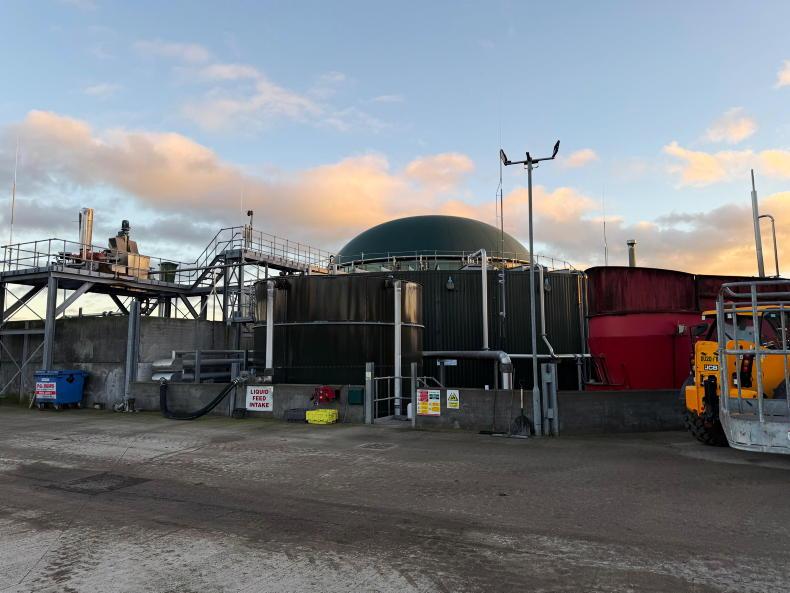

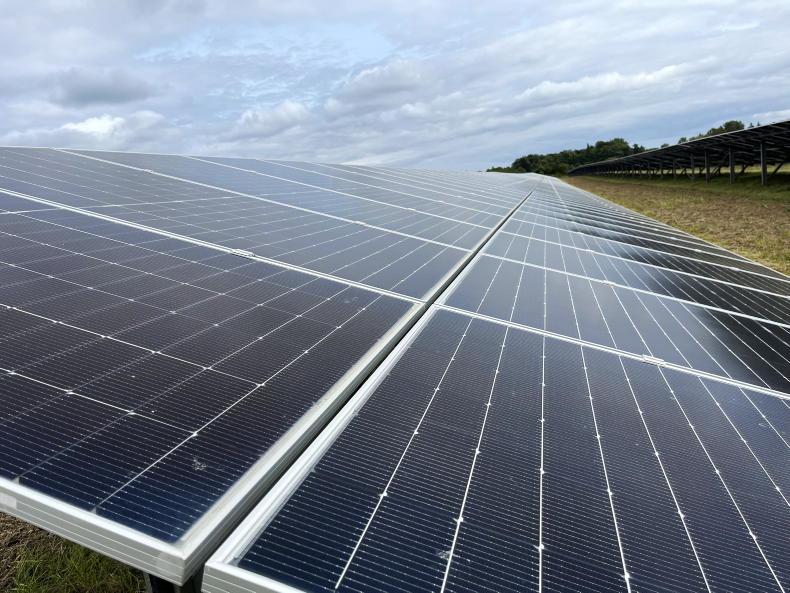
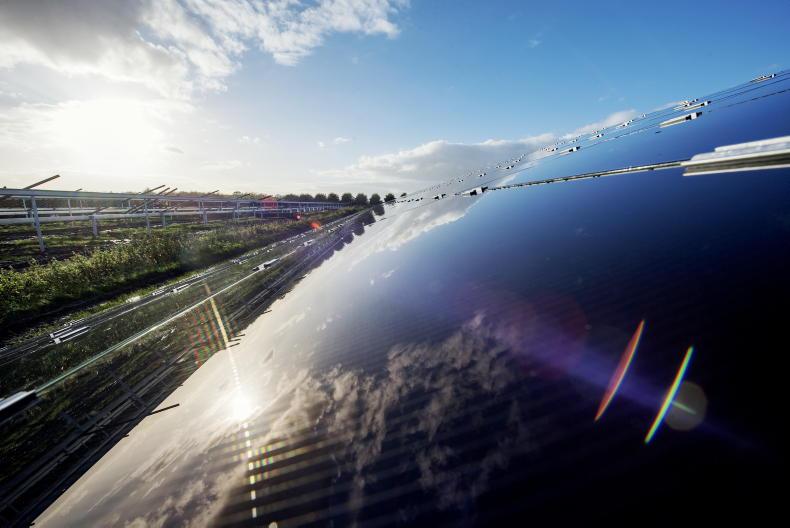
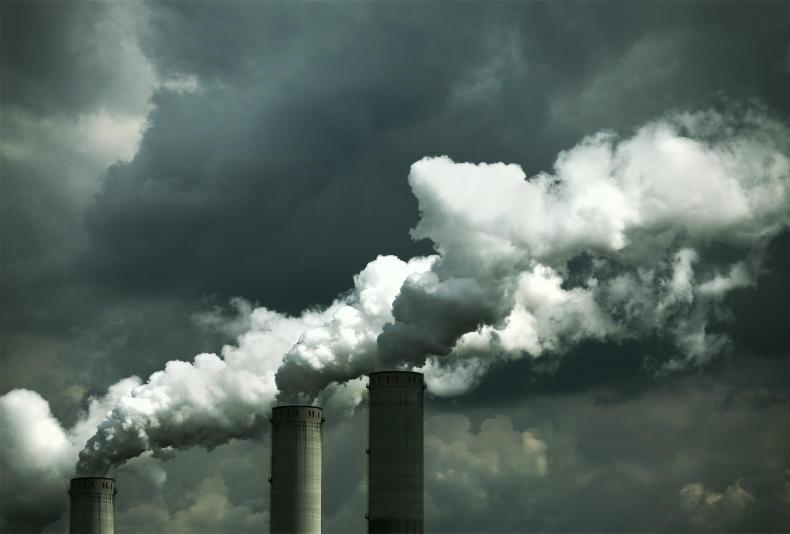
SHARING OPTIONS